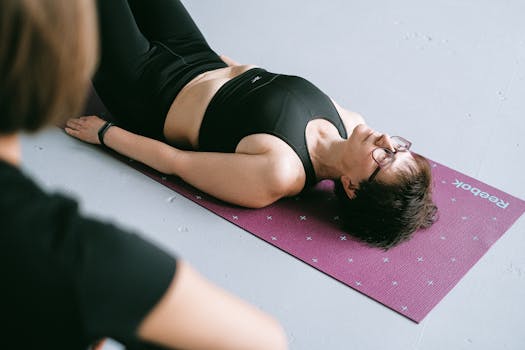Boost Your Mood: How Exercise Can Help Manage Anxiety and Depression
Takeaways: Exercise is not just about physical fitness; it’s a powerful tool for improving mental health. Regular physical activity can reduce symptoms of anxiety and depression, boost your mood, and enhance overall well-being. Start small, find activities you love, and make movement a part of your daily routine.
Hey there! If you’ve ever felt that heavy cloud of anxiety or the relentless grip of depression, you’re not alone. I’ve been there too. Some days, just getting out of bed felt like a monumental task. But here’s the good news: there’s a natural remedy that can help lift that weight off your shoulders – exercise! Yep, you heard me right. Let’s dive into how moving our bodies can be a game-changer in managing anxiety and depression.
Why Exercise Matters for Mental Health
Okay, so let’s get real for a second. When you’re feeling down, the last thing you might want to do is hit the gym or go for a run. I get it! But trust me, getting your body moving can release a cocktail of feel-good chemicals in your brain, like endorphins and serotonin. These are your body’s natural mood lifters!
Research shows that regular physical activity can lower levels of anxiety and depression. It’s like giving your body a natural boost, and the best part? You don’t have to run a marathon to reap the benefits! Even a brisk walk can make a significant difference in your mood.
Finding Your Groove
Now, let’s talk about finding an exercise routine that feels right for you. The key is to pick activities that you actually enjoy. If running isn’t your thing, don’t force it—try dancing, yoga, biking, or even gardening! I personally love a good dance party in my living room. Nothing lifts my spirits quite like shaking it to my favorite tunes!
Here are some tips to help you get started:
- Start Small: You don’t need to commit to an hour-long workout every day. Start with 10 minutes and gradually increase as you feel more comfortable.
- Be Consistent: Aim for at least 3-4 days a week. Consistency is key in seeing the positive effects of exercise on your mental health.
- Mix It Up: Don’t be afraid to try new things! Switching up your routine can keep things exciting and prevent boredom.
- Get Social: Find a workout buddy! Exercising with a friend can make it more enjoyable and hold you accountable.
The Science Behind Exercise and Mental Health
So, what’s happening in our bodies when we exercise? When you engage in physical activity, your brain releases chemicals that enhance your mood. This includes endorphins, often referred to as “feel-good hormones,” which create a sense of happiness and euphoria. Additionally, exercise can help reduce levels of the body’s stress hormones, such as adrenaline and cortisol, which can negatively impact your mental health.
But there’s more! Exercise can also lead to improvements in self-esteem and cognitive function. When you set and achieve fitness goals, no matter how small, it builds confidence. And let’s not forget the social aspect – joining a class or a sports team can provide a sense of belonging and community, which is crucial for mental well-being.
Practical Tips to Stay Motivated

- Set Realistic Goals: Instead of aiming for perfection, focus on progress. Celebrate small victories!
- Keep It Fun: Choose activities that make you smile. If you hate running, don’t do it! Find something you love.
- Create a Routine: Schedule your workouts like appointments. This makes it easier to stick to your plan.
- Listen to Your Body: Some days will be harder than others. It’s okay to take a break or adjust your routine as needed.
FAQs
1. How often should I exercise to see benefits for my mental health?

2. What types of exercise are best for managing anxiety and depression?
Any physical activity that you enjoy can be beneficial! Walking, running, yoga, and dancing are all great options.
3. Can exercise replace therapy or medication for anxiety and depression?
While exercise can be a powerful tool in managing mental health, it shouldn’t replace professional treatment if needed. Always consult with a healthcare provider.
4. What if I don’t have time to exercise?
Even short, 10-minute bursts of activity throughout the day can be effective. Try incorporating movement into your daily routine!
5. How do I stay motivated to exercise regularly?
Find activities you love, set achievable goals, and consider working out with a friend to keep things fun and accountable.


